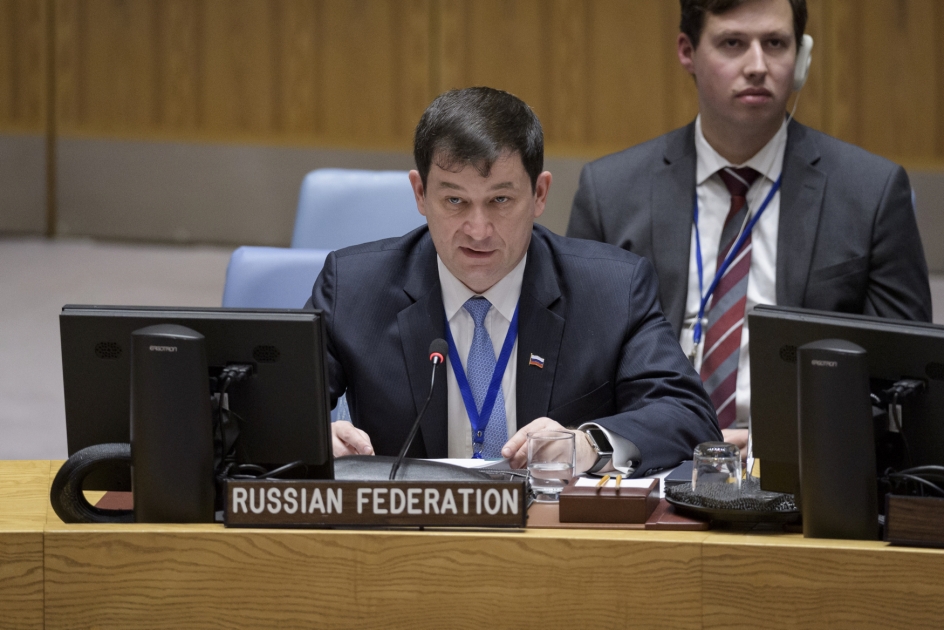Statement by Mr.Dmitry Polyanskiy, First Deputy Permanent Representative of the Russian Federation to the United Nations, at the Security Council on the situation the Sahel
We thank the Special Adviser of the Secretary-General on the Sahel, Mr. Ibrahim Thiaw; the Chair of the Peacebuilding Commission, our colleague the Permanent Representative of Romania, Mr. Ion Jinga; and all the other briefers for their interesting presentations.
We cannot fail to agree with the briefers that in recent years the Sahel countries have continued to face increased challenges to their stability and security, which have obviously had an impact on their ability to overcome the numerous socioeconomic and other difficulties they face. We note that despite the efforts made, extremism and terrorism are unfortunately now affecting new countries there. Combating these dangerous phenomena is a top priority for the region. Accordingly, we deem it extremely timely that efforts have been made by Sahel States to counter growing threats.
We support the regional initiative to establish the Joint Force of the Group of Five for the Sahel. These threats of course undermine political stabilization and progress in solving socioeconomic problems. Therefore, efforts to foster security and stability must be made in the framework of a comprehensive approach combining military and counter-terrorism measures, strengthening State institutions and systemic economic and social development, enhancing efforts to spread of a culture of respect for human rights and the rule of law, and promoting job creation for young people. We highly commended the work of the United Nations Office for West Africa and the Sahel and the United Nations specialized agencies in providing broad assistance to countries on the African continent.
It is crucial that these efforts be made in close coordination with regional organizations, such as the African Union, the Economic Community of West African States and others. A positive role in mobilizing support for the Sahel region is also being played by the Peacebuilding Commission. We consider it important to enhance the effectiveness of the United Nations Integrated Strategy for the Sahel. In our opinion, its potential has not yet been fully exploited. In implementing the Strategy, the opinion of those countries for which it has been developed is very important. We agree with those who have convened today’s meeting that the numerous assistance programmes for the region need to be duly coordinated.
The effectiveness of this coordination will depend on whether the structures already in place — first and foremost, those of the United Nations system — are adhering to their remit and upholding the principle of division of labour. In our opinion, it is only through collective, targeted efforts that are undertaken in the appropriate format and do not create a conflict of competences that we can achieve the desired result. The most important thing for us is that external assistance not turn into an imposition of blanket prescriptions using medicine that is alien to African States. All external interference should be excluded.
We are all well aware that had there not been a violent coup d’état in Libya in 2011, organized from the outside, perhaps we would not have to take up the difficult processes that are occurring in the region to a large extent because of it.
